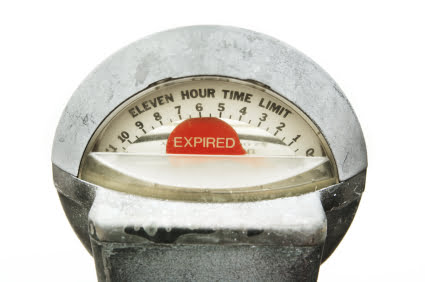When debt collectors are contacting you regularly and you’re wondering if you should just pay off the debt to get rid of them, stop!
Many consumers don’t realize that the debts some bill collectors are chasing after aren’t the consumer’s responsibility anymore.
How is this possible? Because of the Statute of Limoutstanding debtitations that exist in every State. Each State has its own set of rules and parameters regarding outstanding debts. Some States don’t allow a debt collector to collect a certain type of debt after a certain period of time, while others limit the amount of time when a creditor can sue you over an old debt.
Here’s how you can use a Statute of Limitations Law to pay off a debt entirely:
Learn about the type of debt you are dealing with.
If you have a debt that has been outstanding for several years, you may not recall all of the details of your initial credit agreement. Generally speaking, the Statute of Limitations applies to four different kinds of debts. They apply to oral contracts, written contracts, promissory notes (such as a mortgage), and open ended contracts (e.g. credit cards or other types of revolving credit). In some cases, the type of debt will overlap.
Contact your State Attorney General or the Division of Consumer Protection.
These offices can provide you with legal help and advice on whether you are legally bound to the debt the collector is trying to collect on. Figuring out what the Statute of Limitations governs can be tricky, especially if your creditor is in a different state than the one you reside in, or if you have moved after the debt was acquired.
Contact a consumer advocacy group.
The National Association of Consumer Advocate is another great resource for finding legal help and professional advice regarding debt collection in your State. This is a neutral third-party source that can help to determine whether you are legally bound to your debt.
Get in touch with the FTC and NCLC.
The Federal Trade Commission is another reliable source for information about debt collection practices in your State. Get in touch with the National Consumer Law Center by calling (617) 542-9595 to find out what additional rights you have under state laws.
Read: How To Get Zombie Debt Collectors Off Your Back
Calculate when the Statute of Limitations is over.
Take the date cause of action began, which is the date of the last payment or demand letter, then add the number of years of the Statute of Limitations in your state. This date will be the date you are “safe” from having the creditor collect on your account. Just remember that making a partial payment or acknowledging the debt in any way can delay the “start” date of the Statute of Limitations! You have to make sure you just ignore the collector until you have investigated the case yourself.
Inform the collector that the debt has expired under the Statute of Limitations.
If you find that the debt has expired and the creditor ends up filing a suit, you have an absolute defense under the Statute of Limitations. In most cases, the collector will stop contacting you when they understand that your debt really has expired. If they continue to harass you and take you to court, you will need to prove that you are protected under the Statute of Limitations. If the court makes a decision in your favor, the debt will be paid off entirely.








